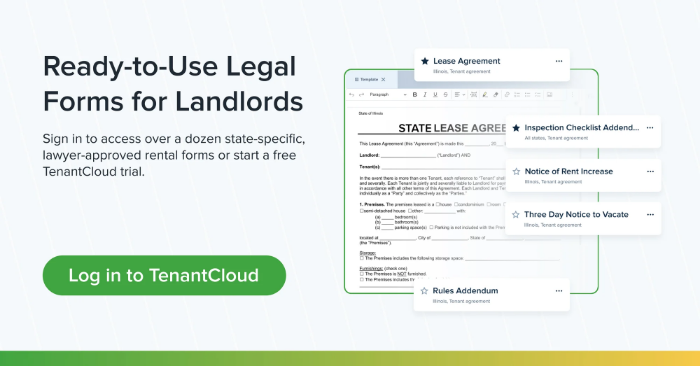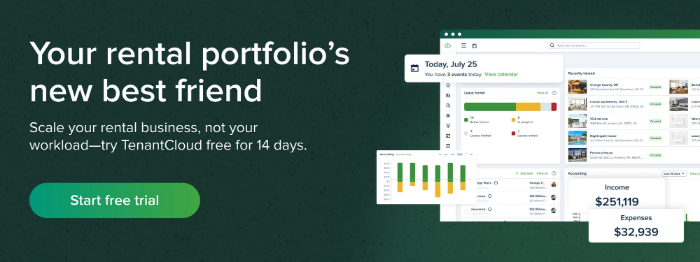 If you're a landlord needing to remove a tenant or a tenant facing an eviction, you already know that it is a complex process requiring several steps and formalities. While an eviction scenario is never ideal, it's important to understand the ins and outs of your local process in order to get the best outcome possible.
If you're a landlord needing to remove a tenant or a tenant facing an eviction, you already know that it is a complex process requiring several steps and formalities. While an eviction scenario is never ideal, it's important to understand the ins and outs of your local process in order to get the best outcome possible.
What's New: Eviction Law Updates 2026
While there haven't been sweeping changes made in recent years, there are new procedural updates and court expectations that landlords should know about:
- Updated Court Forms & Timelines: Starting Sept 2025, new landlord-tenant summons and complaint forms are now mandatory, include clearer checkboxes, and require more detailed information about rent control, subsidies, and eviction grounds. This helps standardize filings and reduce delays.
- Clarity on Tenant Payment Obligations: In Dec 2025, a New Jersey appeals court ruled that, under the Stack Amendment, the exact amount listed in a judgment of possession is what a tenant must pay to stop an eviction, giving tenants clarity.
- Expanded Eviction Prevention Materials: A new Eviction Defense Guide was released to help renters understand their rights and the eviction process, aiming to reduce unnecessary filings and support tenants before cases reach court.
- Proposed Tenant Defense Bill (2026 Session) Senate Bill 403 (Jan 2026) would formally codify the implied warranty of habitability as a defense in eviction cases, allowing tenants to offset rent or defend nonpayment evictions if landlords fail to address major living condition issues. This bill hasn’t passed yet but is likely to.
How the Eviction Process Works
Learning the ropes of New Jersey's eviction process can be tricky, especially if you're new to them in general. While eviction laws vary from state to state and county to county, the eviction process in New Jersey is straightforward:
- Send a written notice
- Fill out a complaint
- Serve the tenant
- Attend a trial
- Final hearing
 While building a positive landlord-tenant relationship may help avoid an eviction scenario, sometimes evictions are unavoidable. Every eviction situation is unique and depends on the lease/rental agreement terms in how you approach it. No matter where you're at in your rental journey, we hope this guide provides everything you need to know about evictions in New Jersey, including reasons to evict, how evictions work, and how to navigate them successfully.
While building a positive landlord-tenant relationship may help avoid an eviction scenario, sometimes evictions are unavoidable. Every eviction situation is unique and depends on the lease/rental agreement terms in how you approach it. No matter where you're at in your rental journey, we hope this guide provides everything you need to know about evictions in New Jersey, including reasons to evict, how evictions work, and how to navigate them successfully.
Getting to Know the Eviction Process
First, let's talk about what an eviction is. An eviction is a legal process that occurs when a landlord has reason to remove a tenant from the property before their lease is up (or after, in some cases). There are many reasons a landlord will file an eviction, such as a tenant violating the lease agreement, falling behind on rent, or other serious issues.
Important Note: Eviction Lawsuit Don'ts
While the landlord technically owns the rental property, they cannot evict a tenant on their own. No matter what the circumstance, landlords and property managers cannot force a tenant out of the property by changing the locks, turning off utilities, or removing doors. Instead, they must follow each step in the legal process to give the tenant time to act and respond.
Reasons a Landlord May Evict
According to New Jersey state law, a landlord can't break a lease agreement without first giving the tenant a written notice. Here are the most common reasons for eviction and the required notices that must be provided:
- Non-payment of Rent: New Jersey allows a five business day grace period for rent due on the first of each month. At this time, rent is not considered late. If a tenant falls behind after the grace period, the landlord can then start eviction proceedings. If the landlord has accepted late rent payments in the past, they must then give the tenant a written 30-day notice to quit.
- Non-Renewal of a Lease: If a tenant's lease expires without renewal, the tenant must move out at the end of the rental term. If they continue occupying the property without the landlord's consent, the landlord can initiate eviction and provide a 30-day notice.
- Lease Violation: If a tenant violates the lease agreement, such as damaging the rental, keeping unapproved pets, or smoking in a non-smoking area, the landlord must deliver a written notice that includes the actions violated in the lease. This serves as a 30-day notice.
- Month to Month: Tenant and landlord must provide a 30-day notice to the other party if they intend to end a month-to-month tenancy.
- Disorderly Conduct: If a tenant is charged with disorderly conduct or causes injury to the property, the landlord must give them a 3-day notice.
- Illegal Activity: Engaging in illegal activity on the property is a valid reason for eviction in New Jersey.Tenants who engage in criminal activity on or near the premises can be given a 3-day notice to quit. New Jersey law considers illegal activity such as substance abuse, theft, assault, trafficking, and illegal services.
- Selling the Rental: A landlord must give a 2-Month Notice to Quit if they want to sell the rental property or use it for personal use in New Jersey.
 Providing tenants with a written eviction notice before the eviction process starts helps you avoid legal trouble and shows your compliance with the law.
Providing tenants with a written eviction notice before the eviction process starts helps you avoid legal trouble and shows your compliance with the law.
Importance of a Lease/Rental Agreement
Often signed at the beginning of the lease, a lease or rental agreement outlines the terms and conditions the landlord and tenant must follow during the rental period. These terms help maintain a positive landlord-tenant relationship while protecting both sides.
As mentioned, if a tenant violates the terms and conditions in the lease, the landlord has a case to begin eviction. The better the landlord can provide evidence of the violation, the smoother and easier the eviction process will be. It's always a good idea to save texts, screenshots, photos, and your lease agreement in a secure, easily accessible place.
The Eviction Process in New Jersey
An eviction requires patience and diligence when following each step in the process. Here's how to start an eviction process or eviction lawsuit, step by step, in New Jersey.
 1. Provide Notice to the Tenant
1. Provide Notice to the Tenant
The first step in the eviction process is for the landlord to provide the tenant with a written notice. The type of notice provided will vary on the violation and tenancy length (as listed above).
Providing notice gives the tenant time to fix the situation if necessary or find the means to move all their belongings out of the property before the expected due date. The written notice should provide the reason for eviction and how long the tenant has to fix the issue or vacate.
2. File a Complaint in Court
If the tenant fails to fix the situation within the timeframe, the landlord can then file a complaint in the related justice court after the days of notice are up. This process typically happens in a small claims court. The landlord must fill out a complaint form and pay a filing fee (typically $90 to $150, depending on the area.) This process takes two to three weeks. For more details on how to prepare for trial, visit New Jersey Courts.
What to File
- Complaint: After notice has been provided, the landlord may pursue a formal eviction by filing a complaint with the court detailing the reasons for eviction.
- Summons: This must be filed with a complaint and is served to the tenant once a hearing date is scheduled. A summons gives the tenant details of the complaint and provides a chance to present their side.
 3. Tenant is Served
3. Tenant is Served
Next, the tenant is served the court documents after they've been filed, which typically include a Summons and Complaint. In New Jersey, the landlord cannot serve the tenant. A sheriff or authorized individual must serve these documents. The date and time of the eviction hearing will be included, so the paperwork must be delivered within five days of the hearing.
4. Attend the Court Hearing
Tenants in the state of New Jersey aren't required to respond in order for a trial to be scheduled. However, the tenant should attend the hearing to present their case. At the hearing, a judge or magistrate will listen to each side and rely on any presented evidence to make a decision.
5. Eviction is Initiated
If the landlord wins the trial, the eviction process enters its final stage, which is where they issue a Judgment for Possession, allowing the clerk to issue a warrant for removal.
6. Property is Repossessed
If the tenant is not out of the property within the required due date on the warrant for removal, the landlord must arrange for an authorized official to forcibly remove the tenant or lock them out of the property. The landlord cannot evict the tenant on their own, even after a Judgment for Possession.
New Jersey Eviction Process Timeline
The eviction process in New Jersey typically takes 3-12 weeks for straightforward, uncontested cases, however, it can take several months if the tenant contests the eviction or requests a delay.
- The process begins when the landlord serves the required notice, which varies depending on the reason for eviction.
- If the issue isn’t resolved, the landlord files a complaint and a hearing is usually scheduled within 10 to 30 days.
- If the judge rules in favor of the landlord, the court issues a Judgment for Possession. At least three business days after the judgment, the landlord may request a Warrant for Removal.
- Once served, the tenant has three business days to vacate before a court officer can physically remove them.
Importantly, New Jersey tenants may still stop the eviction in many nonpayment cases by paying what is required in court during the Judgement for Possession.
Rights and Responsibilities
In order to remain fair and lawful, landlords and tenants should have a firm understanding of their rights. In New Jersey, there are landlord-tenant-specific laws that may alter the process compared to other states.
For the Landlord
- Landlords have the right to screen each tenant before they move in to help reduce the chances of missed payments or violations. (Tip: Run background and finance checks directly in TenantCloud.)
- Landlord's cannot self-evict a tenant. Only the appropriate officials can remove tenants by force.
- Landlords are required to store any property the tenant leaves behind for 33 days. They can then charge the tenant for any storage fees associated with the items.
- Landlords must provide a Flood Risk Notice to all tenants before they sign a lease in New Jersey.
- The landlord must notify the tenant that they are storing their belongings and give them a written notice that they have 33 days to collect their items. If the tenant fails to retrieve the items, the landlord can dispose of the items however they prefer.
- Both landlord and tenant are responsible for reading and understanding the lease/rental agreement before signing and maintaining the terms of the agreement.
- Both landlord and tenant have the right to a fair trial. It's always a good idea to keep careful notes of all rent payments, lease agreements, communications, etc., to help your case in the event of an eviction.
For the Tenant
- If a landlord has gone through the entire eviction process and a tenant amends their failure to pay rent, the tenant can in fact stay in the property for the remaining rental period.
- Both landlord and tenant are responsible for reading and understanding the lease/rental agreement before signing and maintaining the terms of the agreement.
- Both landlord and tenant have the right to a fair trial. It's always a good idea to keep careful notes of all rent payments, lease agreements, communications, etc., to help your case in the event of an eviction.
- Tenants have a right to safe housing in New Jersey, and may have the right to withhold rent if repairs are not made by the landlord.
- More local programs in New Jersey now offer free legal representation to income-eligible tenants facing eviction.
- New Jersey's "Stack Amendment" allows tenants up to three days after a warrant is posted to pay and prevent eviction. If a tenant pays all rent due within three days of a judgment for possession, the eviction process is discontinued.
If you find yourself in an eviction suit and would like specific law advice, contact an attorney specializing in New Jersey law.
New Jersey's Anti-Eviction Act
In this state, tenants are protected by the Anti-Eviction act. This act requires landlords to show "good cause" for eviction, such as non-payment of rent, lease violations, or disorderly conduct.
Eviction Defense Guide for Tenants
Additionally, New Jersey Department of Community Affairs (DCA) released a new, interactive guide in 2025 to walk tenants through the entire eviction process. This guide helps explain the laws clearly, giving tenants better support and understanding. Tenants can access the eviction guide here.
Conclusion
Being a landlord in New Jersey comes with plenty of benefits and a handful of responsibilities. Keep good landlord-tenant communication and get to know the eviction laws in New Jersey, and you'll be on the right track to a healthy, positive rental experience. And if you need to evict a tenant, you now have all the tools and resources you need to get started with confidence.
TenantCloud makes property management a breeze, helping you screen new tenants, communicate with renters, and keep important records all in one place. Get started with a free 45-day trial today.
FAQs
Can I forcibly remove tenants myself in New Jersey?
No, landlords may face legal trouble if they attempt to force a tenant out of their property themselves. In New Jersey, tenants can sue their landlords for damages, which could be several thousands of dollars. For best results, follow the eviction process diligently and seek a lawyer for additional guidance.
What can landlords not do in an eviction in New Jersey?
Forcing a tenant out of the home is illegal, otherwise known as a self-help eviction. This includes cutting off the tenant's access to power, water, heat, etc., or changing the locks so they can no longer enter the property.
Do landlords need permission to enter in New Jersey?
No, it is not legal for landlords to enter a rental property without giving the tenant a proper notice. This is to protect the privacy of the tenant.
How long should landlords keep tenant belongings in New Jersey?
In New Jersey, landlords must store any property left behind by the tenant for up to 33 days. The landlord can charge the tenant for any storage fees associated with the items, and if the tenant does not pick up the items, the landlord can sell, donate, or dispose of the belongings.




